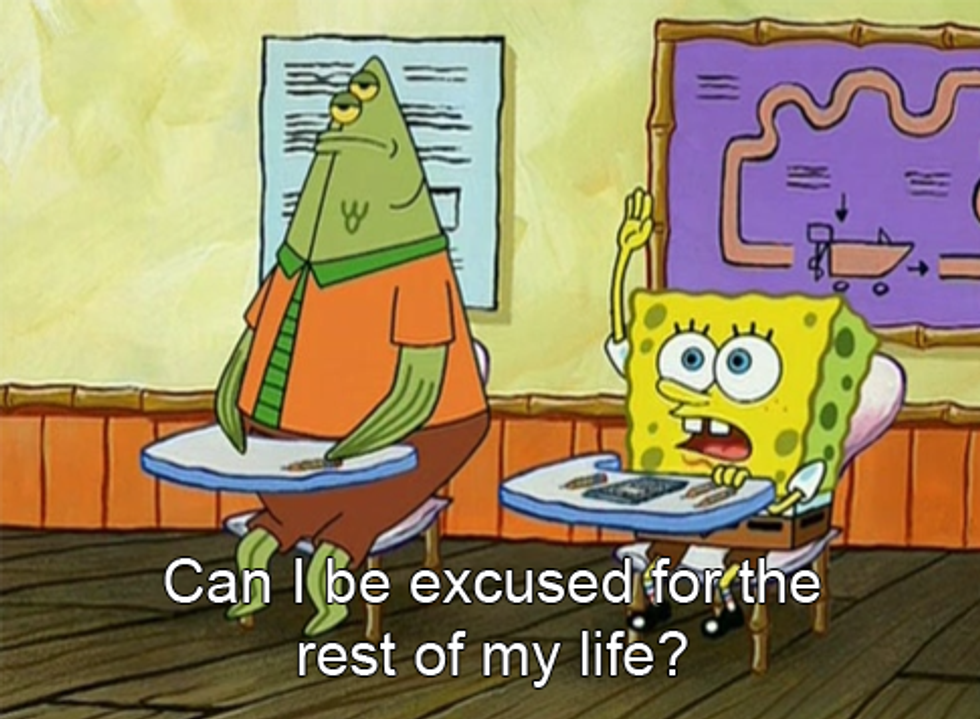"There’s nothing like summer in the city," sings Aaron Burr in Lin-Manuel Miranda’s smash hit musical, Hamilton, which accrued an impressive eleven Tony awards on June 12, a total only bested by Mel Brooks’s "The Producers," which earned a perfect 12 Tonys in its year. I can attest, there’s something magical about New York City at this time of year, especially when you’re waiting along 47th Street outside of the Richard Rodgers Theatre to see Broadway’s hottest show.
"Hamilton" is currently sold out until roughly December 2017, with tickets going for upwards of $800 for decent seats. Tickets are available through a lottery system that draws winners each day, but the odds of winning are marginal at best. Stats aside, "Hamilton" has set America on fire with its electrifying hip-hop soundtrack and revolutionary (pun intended) subject matter. A hip-hop musical about Alexander Hamilton’s life, though improbable, has forever changed American musical theatre as we know it, and I was lucky enough to witness the revolution live.
As an avid musical theatre fan, I have of course listened to the Hamilton soundtrack religiously for the past nine months since its release, and have followed the social coverage of Hamilton, Lin, and all that surrounded them, but I could not have been prepared for what I saw on the stage on Wednesday night.
"Hamilton," is, in essence, the most groundbreaking musical of our generation, or piece of theatre, for that matter. Its genius lies in its delivery: Broadway had long ago been bred with jazz ("City of Angels," "Chicago") and with rock ("Rent," "Jesus Christ Superstar," "Spring Awakening"), but hip hop was still generally a rarity along the Great White Way, reserved solely for explicitly ethnic roles and cultural pieces. Hamilton upended that notion, using hip-hop not as a topic, but as a vehicle for storytelling. In that way, "Hamilton" has uses of rap that evokes the spirit of hip-hop, of rising up from extenuating circumstances and creating one own’s voice through verse, something perfectly suited to Treasury Secretary Hamilton, a poor immigrant who rose to prominence by sheer ambition, determination, and through prolific writing (he wrote 51 of the 85 Federalist Papers, guys.)
Then there’s Hamilton’s casting choice: using a primarily multiracial cast, Hamilton challenges possibilities of what is acceptable and what is accepted when casting historical pieces, all the while providing new opportunities for actors of color and challenging audience perceptions. As Miranda eloquently puts it in his book, "Hamilton: The Revolution," “It’s America then told by America now.” That concept comes through in every aspect of the show, whether it be the electrifying music and vocals, modern hip-hop choreography (masterfully imagined by Andy Blankenbuehler) and period costumes, props, and scenery, to create one beautifully cohesive hybrid of a show that brings only one word to mind: revolutionary.
Even without knowing a bit about the show, which seems impossible, considering the amount of press coverage it’s gotten in the past few months, watching it yields an unmistakable instinct that you’re watching something special. What I saw on Wednesday night defied criticism, defied all expectations I had for a hip-hop musical about Alexander Hamilton. What I watched instead was simply put, art: I was immersed in the world as re-imagined by Lin-Manuel Miranda, and I couldn't look away for a second. This, I was positive, was as groundbreaking, if not more so, as those audiences watching "West Side Story" must have felt in 1957, when dance first emerged as a storytelling vehicle in the world of musical theatre. For two hours and 45 minutes, I became part of the revolution, and those around me were introduced into the new nation being created around us, both onstage and off: the Hamiltonation, if you will.
"Hamilton" has single-handedly changed the face of the modern musical into something new, fresh, and unmistakably American by nature. The hallmark of our culture is now the story of a poor immigrant rising to the top of society by his own hard work and grit: could there be a story any more American? Eschewing the “rules” of musical theatre, "Hamilton" creates its own, and upends our traditional notions of what theatre can be with a story as old and as noble as America itself. Gone are the days of Rodgers and Hammerstein-esque romance in the theatre, the American public has spoken, and it wants Miranda, a new age of musicals, and of American culture in general. Personally, I feel immensely lucky to have had the opportunity to be a part of this movement in its infancy: to be watching history, and being surrounded by it. And who says history can’t be cool?




















